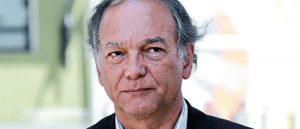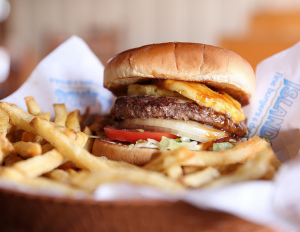Dr. Alejandro Corvalan: "The team work and communication between laboratories has allowed us to generate a very good job to ACCDiS inside".

 Advanced Center for chronic diseases (ACCDiS ), It falls within the FONDAP initiative of the National Commission for scientific and technological research (CONICYT). The Centre seeks to contribute to the scientific development of the country through the finished study of the main causes that involve the development of persistent chronic diseases in the population. Through this, This Fondap is positioned as a focus of hope for thousands of patients in Chile, those who must live every day with the complications of having some of these pathologies.
Advanced Center for chronic diseases (ACCDiS ), It falls within the FONDAP initiative of the National Commission for scientific and technological research (CONICYT). The Centre seeks to contribute to the scientific development of the country through the finished study of the main causes that involve the development of persistent chronic diseases in the population. Through this, This Fondap is positioned as a focus of hope for thousands of patients in Chile, those who must live every day with the complications of having some of these pathologies.
"The Center will deliver information in first line on the chronic diseases in Chile, becoming the obligatory reference to national researchers, as well as for those in charge of public health" (ACCDiS ).
One of the laboratories that make up ACCDiS is led by Dr. Alejandro Corvalan, Member of the Faculty of Medicine of the Pontifical University Catholic of Chile and specialist in the area of epigenetics of gastric Cancer.
In ACCDiS, Dr. Corvalan and his team, they work on biomarkers for the early detection of gastric cancer, the first cause of death nationally and the third world.
Why they focused on this area of research?
Mainly because gastric cancer is an issue of social impact, and for several years that I have been investigating in this regard. That way, upon entering this FONDAP, It has allowed us to-as research team - go climbing in the stages of understanding of these biomarkers and their applications.
It should be noted that prior to joining ACCDiS, We discovered a biomarker called "I Reprimo", This fact motivated us to validate it on a larger scale and better understand. Inside ACCDiS, We have been able to make broader question around this biomarker, and so to start a journey of clinical validation, in which we combine it with other popular, and in this way, understand your role in the process of cancer development.
How has ACCDiS contributed to the better understanding of this biomarker?
This biomarker was gene that was not described, and at the same time, a family that is not described. In this sense, ACCDiS , It has allowed us to scale these questions and through collaborations with Dr. Marcelo Kogan, analyzing ultra-sensitive methods for the detection of this biomacador, and the team of Dr. Andrew Quest, evaluating the role of the in terms of suppression of cancer-associated protein, We have been able to generate greater knowledge linked to the matter. In this way, We explore other genes, What are microRNAs, which are quite interesting in the process of understanding how modulates the cancer process.
Are there nutritional factors that trigger the gastric cancer?
All irritating foods have a consequence or chronic inflammatory development in the stomach, that favors the development of cancer. However, each individual is different and so it is difficult to assign a specific risk.
For example, the cigarette can cause cancer, but not all people who smoke develop this pathology. With the power relationship is a little less direct, so it wouldn't be so absolutist in asserting that certain foods cause gastric cancer, Since this requires much evidence scientific. That does not mean that we should not limit their intake of foods high fat or very spicy, them if they generate a negative imbalance in our body.
Do so influence his laboratory findings in the knowledge that there are around gastric cancer?
Gastric cancer does not originate from one day to another, it's an incubation process of about 20 years, then if one has biomarkers for all these stages occurring previously, can go defining groups of risk and thereby focus the intervention of endoscopy, that is the approach that enables us to diagnose and treat tumors at early stage.
As this test is very expensive in resources, the possibility to select patients who should have an endoscopy is the main benefit of biomarkers.
What is the motivation that drives this lab to develop this type of research?
At the Fondap as a research project that allows us to have a much broader offer, in which students can and have more spectrum to choose, It is one of the factors that keep us excited.
Another point is that we have generated a very pleasant atmosphere, in which we all support and paddle to the same side, keeping us very motivated in this line of gastric cancer.
With the laboratories of the Dres. Andrew Quest and Marcelo Kogan, We generate enough interesting links, regarded from the perspective of interdisciplinary and transdisciplinary. In this sense, These interactions, together with the small discoveries that come out daily work product, will boosting spirits and strengthening the team.
Source: 4ID/CONGRESS, All rights reserved. ®
Journalist: Patricio Grunert Alarcón. ®
To be reproduced, please contact to: support@4id.cl or communication
Quote as source to: 4ID-CONGRESS® / Patricio Grunert Alarcón, All rights reserved. ®


